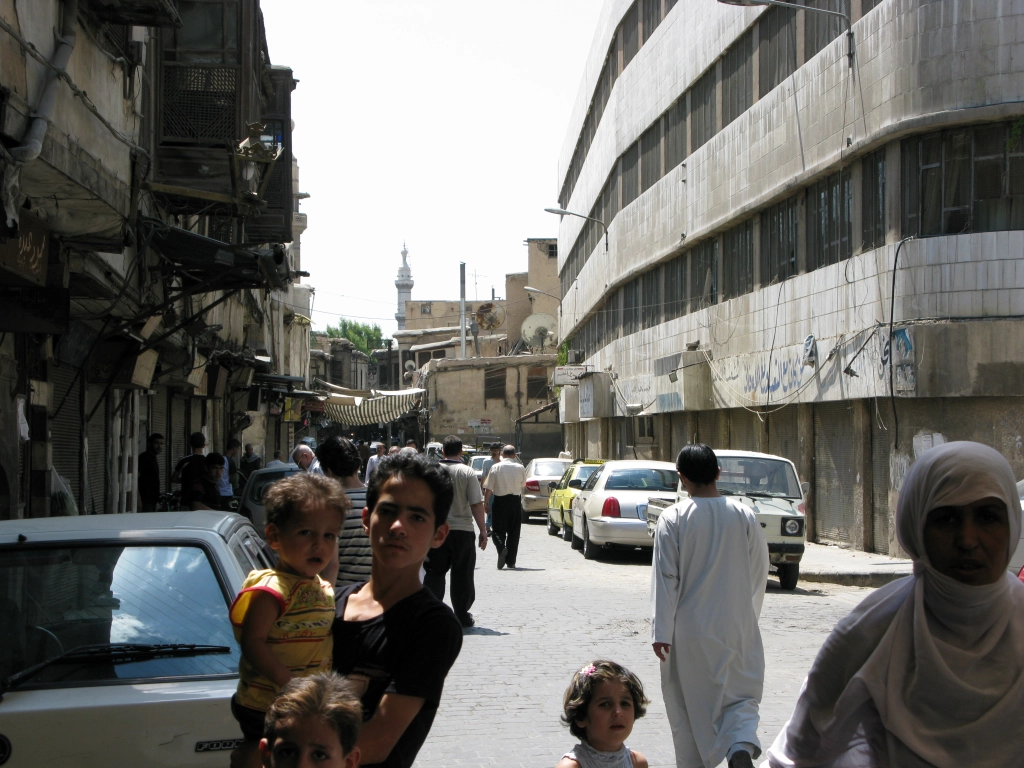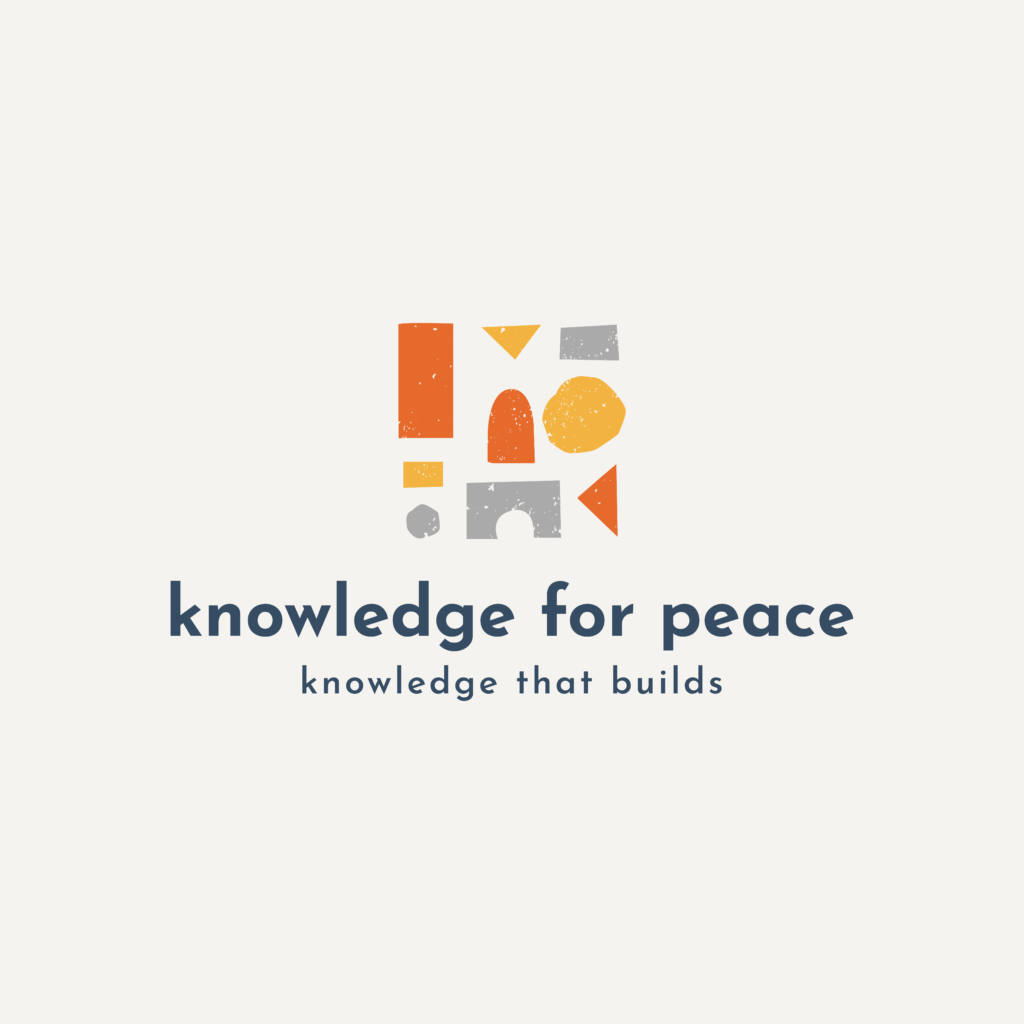Democratization & Institution Building
الديمقراطية وبناء المؤسسات

تمثل الديمقراطية وبناء المؤسسات ركائز أساسية لتحقيق السلام الدائم في بيئات ما بعد الحروب، مما يجعلها عنصرًا محوريًا في نهج منظمة “معرفة من أجل السلام”. تؤكد هذه الركيزة أن إعادة بناء المؤسسات الديمقراطية وتعزيز الحوكمة الرشيدة أمران حيويان لمنع تكرار العنف ودعم مرونة المجتمعات على المدى الطويل. غالبًا ما تتسم المجتمعات ما بعد الحروب بضعف أو انهيار كامل في المؤسسات، مما يجعل الديمقراطية وإنشاء مؤسسات قوية وشاملة أمرًا ضروريًا لجهود بناء السلام.
يتجاوز بناء المؤسسات في بيئات ما بعد الحروب الجانب الفني المتعلق بإعادة تأسيس الهيئات الحكومية. فهو يتطلب إعادة تشكيل كيفية توزيع السلطة وممارستها، مع ضمان أن تكون المؤسسات خاضعة للمساءلة أمام الشعب الذي تخدمه، وأن تلتزم بمبادئ الشفافية، والشمولية، وسيادة القانون. في أعقاب الصراعات، غالبًا ما تكون المؤسسات مثل القضاء، وأجهزة إنفاذ القانون، والهيئات السياسية مفككة أو فاسدة أو واقعة تحت تأثير القوى التي هيمنت خلال الصراع. ومن هنا، فإن إنشاء إطار قانوني قوي يضمن حقوق المواطنين ووضع آليات للمساءلة يمثلان خطوات أولى ضرورية.
يجب أن تأخذ عملية الديمقراطية في بيئات ما بعد الحروب في الحسبان تعقيدات وهشاشة الوضع. قد تؤدي الجهود المتسرعة لتعزيز الديمقراطية، خصوصًا إذا ركزت فقط على إجراء الانتخابات، إلى تفاقم الانقسامات بدلاً من معالجتها. ولهذا السبب، تشدد منظمتنا على أهمية اتباع نهج تدريجي وشامل لبناء الديمقراطية، حيث يتم تعزيز المشاركة المدنية، وإرساء عمليات انتخابية عادلة، وإدماج الفئات المهمشة في منظومة الحوكمة. فالانتخابات وحدها لا تضمن الديمقراطية؛ يجب أن تكون جزءًا من ثقافة أوسع من المشاركة والمساءلة.
تلعب إصلاحات القطاع الأمني دورًا حيويًا في تعزيز الديمقراطية وبناء المؤسسات. في العديد من بيئات ما بعد الحروب، تكون الأجهزة الأمنية، بما في ذلك الشرطة والجيش، غالبًا مرتبطة بهياكل استبدادية أو أطراف النزاع. تهدف إصلاحات القطاع الأمني إلى إعادة تشكيل هذه المؤسسات لتصبح خاضعة لرقابة مدنية وتعمل ضمن أطر الحوكمة الديمقراطية. بدون إصلاحات مناسبة للقطاع الأمني، يمكن أن تقوض انتهاكات حقوق الإنسان أو العجز عن تحقيق الأمن والعدالة جهود الديمقراطية. ومن خلال ضمان أن الأجهزة الأمنية تُعاد هيكلتها لحماية المواطنين بدلاً من النخب أو الفصائل السياسية، تسهم الإصلاحات في بناء الثقة بين الشعب والدولة.
تعد سيادة القانون جانبًا أساسيًا من عملية الديمقراطية، وغالبًا ما تكون ضعيفة أو غائبة في مجتمعات ما بعد الحروب. يجب إصلاح المؤسسات القضائية أو بناؤها من الصفر، مع ضمان استقلاليتها وشفافيتها وقدرتها على تحقيق العدالة. إن تعزيز سيادة القانون أمر جوهري للديمقراطية لأنه يضمن أن لا أحد فوق القانون ويوفر بيئة مستقرة تمكن المواطنين من ممارسة حقوقهم ومساءلة الحكومة.
يرتبط بناء المؤسسات بشكل وثيق بمعالجة الأسباب الجذرية للصراع. غالبًا ما تكون قضايا مثل عدم المساواة، والتهميش، وانعدام التمثيل السياسي في صلب الحروب الأهلية وأعمال العنف. يجب أن تتناول جهود الديمقراطية في مرحلة ما بعد الحروب هذه القضايا من خلال إنشاء أنظمة سياسية شاملة تمثل جميع فئات المجتمع، لا سيما الفئات المهمشة والأقليات. على سبيل المثال، يمكن أن تساعد اللامركزية في توزيع السلطة بشكل أكثر عدلاً، مما يسمح للحكومات المحلية بمعالجة الاحتياجات الإقليمية الخاصة مع الحفاظ على الوحدة الوطنية.
يلعب المجتمع المدني أيضًا دورًا حاسمًا في تعزيز الديمقراطية ما بعد الحروب. يمكن لمنظمات المجتمع المدني أن تعمل كجهات رقابية لضمان بقاء المؤسسات خاضعة للمساءلة وعدم اقتصار الديمقراطية على مظاهر سطحية. كما تسهم في تعزيز المشاركة السياسية، وتثقيف المواطنين بشأن حقوقهم، والمطالبة بالإصلاحات الضرورية. في سياقات ما بعد الحروب، حيث تكون الثقة في الحكومة منخفضة، توفر منظمات المجتمع المدني جسرًا بين المواطنين والمؤسسات الحكومية، مما يساعد على استعادة الثقة وتشجيع المشاركة في العمليات الديمقراطية.
يلعب الفاعلون الدوليون والجهات المانحة دورًا مهمًا في دعم الديمقراطية وبناء المؤسسات. ومع ذلك، يجب إدارة هذا الدعم الخارجي بعناية لضمان تكامله مع الجهود المحلية بدلاً من أن يطغى عليها. تُعد الملكية المحلية مبدأً أساسيًا لبناء المؤسسات المستدامة، حيث يجب أن تعكس هذه المؤسسات واقع السكان المحليين واحتياجاتهم وتطلعاتهم لتكون فعالة وشرعية. إن عمليات الديمقراطية التي تتأثر بشكل مفرط بالجهات الخارجية دون مشاركة حقيقية من السكان المحليين تخاطر بإنشاء مؤسسات منفصلة عن الشعب ومعرضة للانهيار في المستقبل.
تنظر منظمة “معرفة من أجل السلام” إلى الديمقراطية وبناء المؤسسات كعمليتين مترابطتين تسهمان في استقرار المجتمعات ما بعد الحروب وتطورها على المدى الطويل. يركز النهج على إنشاء مؤسسات ديمقراطية لا تكون فقط فعالة بل أيضًا قادرة على الصمود أمام الضغوط السياسية والاستمرار في خدمة الشعب حتى في أوقات الأزمات. وتشجع هذه الركيزة على اتباع نهج شامل ومدروس للديمقراطية، يُبنى من الأساس ويشرك جميع قطاعات المجتمع في السعي نحو السلام وإصلاح الحوكمة.
في الختام، الديمقراطية وبناء المؤسسات ليسا حلولًا سريعة بل عمليتان طويلتا الأمد تتطلبان الالتزام، والشمولية، والانتباه الدقيق للسياق المحلي. من خلال التركيز على إصلاح المؤسسات الأساسية مثل القضاء والأجهزة الأمنية، وضمان سيادة القانون، وتعزيز المشاركة المدنية، يمكن للمجتمعات ما بعد الحروب أن تتجه نحو حوكمة مستقرة وديمقراطية. تُبرز الركيزة الديمقراطية لمنظمتنا أهمية الإصلاحات الشاملة التي تعالج الأسباب الجذرية للصراع، وتبني الثقة في الحكومة، وتؤسس لسلام دائم
Democratization & Institution Building
Democratization and institution building are foundational to creating lasting peace in post-war settings, making them a core pillar of Knowledge4Peace’s approach. This pillar emphasizes that rebuilding democratic institutions and fostering good governance are essential to prevent the reoccurrence of violence and support long-term societal resilience. Post-war societies are often characterized by weakened or completely collapsed institutions, which makes democratization and the establishment of strong, inclusive institutions critical for peacebuilding efforts.
Institution building in post-war settings involves more than the technical restoration of governmental bodies. It requires transforming how power is distributed and exercised, ensuring that institutions are accountable to the people they serve and that they uphold the principles of transparency, inclusiveness, and the rule of law. In the immediate aftermath of conflict, institutions such as the judiciary, law enforcement, and political bodies are often fragmented, corrupt, or heavily influenced by those who held power during the conflict. Establishing a robust legal framework that guarantees citizens’ rights and creating mechanisms for accountability are crucial first steps.
The democratization process in post-war settings must take into account the complexities and fragility of the environment. Rushed democratization efforts, particularly those focused solely on elections, can exacerbate divisions rather than heal them. This is why Knowledge4Peace stresses the importance of a gradual and inclusive approach to democracy-building, one that fosters civic participation, establishes fair electoral processes, and integrates marginalized groups into governance. Elections alone do not guarantee democracy; they must be accompanied by a broader culture of participation and accountability.
Security Sector Reform (SSR) plays an integral role in democratization and institution building. In many post-war settings, the security apparatus, including the police and military, are often tied to authoritarian structures or conflict factions. SSR seeks to reform these institutions, making them accountable to civilian oversight and ensuring they operate under democratic governance frameworks. Without proper reform of the security sector, efforts to democratize can be undermined by continued human rights abuses or the inability to provide security and justice for all citizens. By ensuring that security institutions are reformed to protect citizens rather than a select elite or political faction, SSR helps build trust between the population and the state.
A key aspect of democratization is establishing the rule of law, which is often weak or absent in post-war societies. Judicial institutions must be reformed or built from scratch, ensuring that they are independent, transparent, and capable of delivering justice. Strengthening the rule of law is fundamental for democratization because it guarantees that no one is above the law, and it creates a stable environment in which citizens can exercise their rights and hold the government accountable.
Institution building is also closely tied to addressing the root causes of conflict. Inequality, exclusion, and a lack of political representation are often at the heart of civil wars and violence. Post-war democratization efforts must address these issues by creating political systems that are inclusive and representative of all groups in society, particularly marginalized and minority communities. Decentralization, for example, can help distribute power more evenly, allowing local governments to address specific regional needs while maintaining national unity.
The role of civil society is another critical element in post-war democratization. Civil society organizations (CSOs) can serve as watchdogs, ensuring that institutions remain accountable and that democratization is not merely a superficial process. They are also instrumental in fostering political engagement, educating citizens on their rights, and advocating for necessary reforms. In post-war contexts, where trust in government is often low, CSOs provide a bridge between citizens and state institutions, helping to rebuild confidence and encourage participation in democratic processes.
International actors and donors also play a significant role in supporting democratization and institution building. However, external involvement must be carefully managed to ensure that it complements local efforts rather than overriding them. The principle of local ownership is central to sustainable institution building, as institutions must reflect the realities, needs, and aspirations of the local population to be truly effective and legitimate. Democratization processes that are overly influenced by external actors without genuine local input risk creating institutions that are disconnected from the population and vulnerable to future destabilization.
At Knowledge4Peace, democratization and institution building are seen as interconnected processes that contribute to the overall stabilization and long-term development of post-war societies. The focus is on creating democratic institutions that are not only functional but also resilient, capable of withstanding political pressures and continuing to serve the population even in times of crisis. This pillar encourages a thoughtful, inclusive approach to democratization, one that builds from the ground up and engages all sectors of society in the pursuit of peace and governance reform.
In conclusion, democratization and institution building are not quick fixes but long-term processes that require commitment, inclusiveness, and careful attention to the local context. By focusing on reforming key institutions such as the judiciary and security forces, ensuring the rule of law, and fostering civic engagement, post-war societies can move toward stable, democratic governance. The democratization pillar of Knowledge4Peace emphasizes the need for comprehensive reforms that address the deep-rooted causes of conflict, build trust in government, and create lasting peace.

